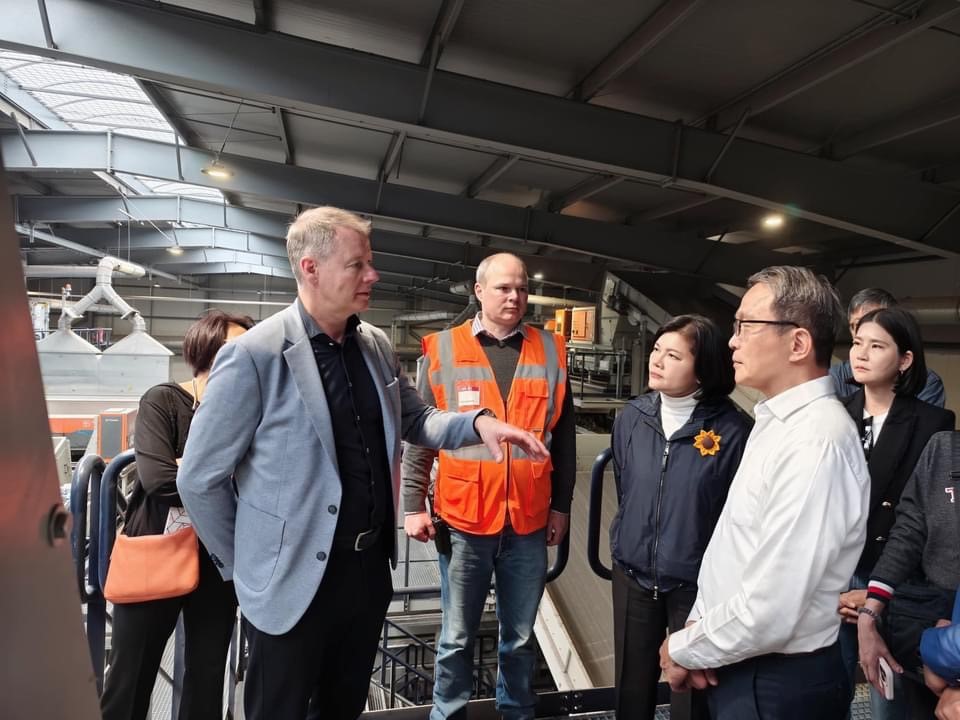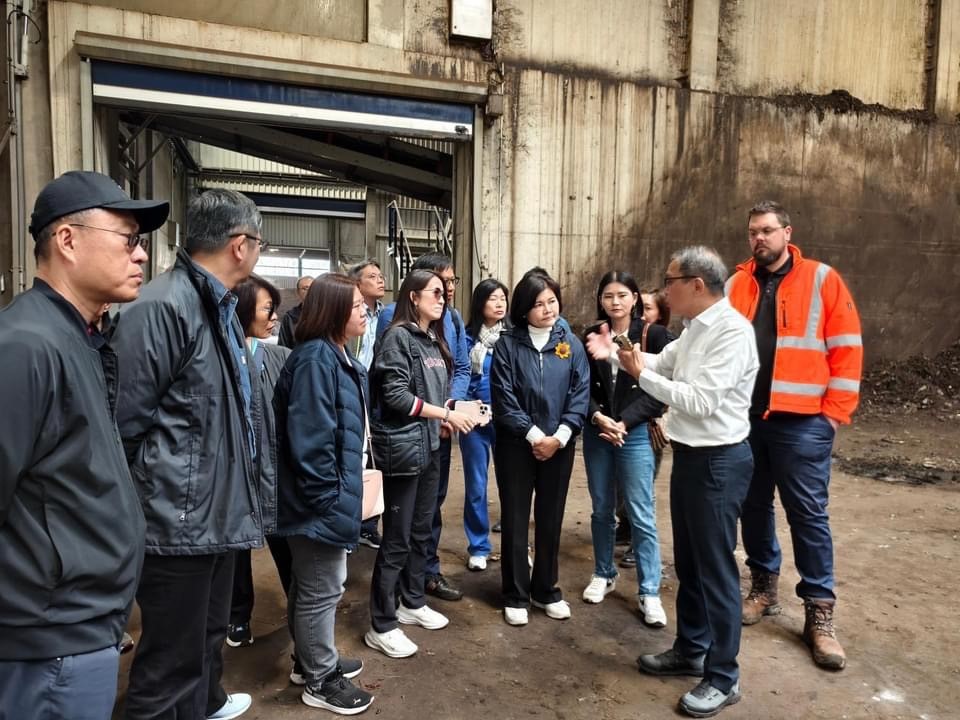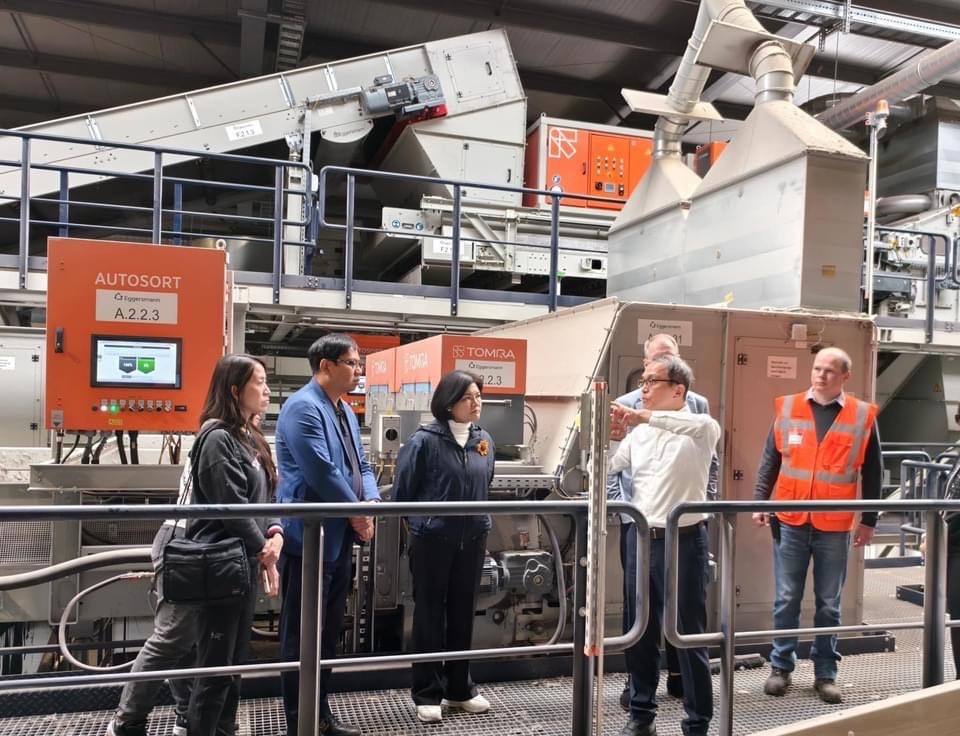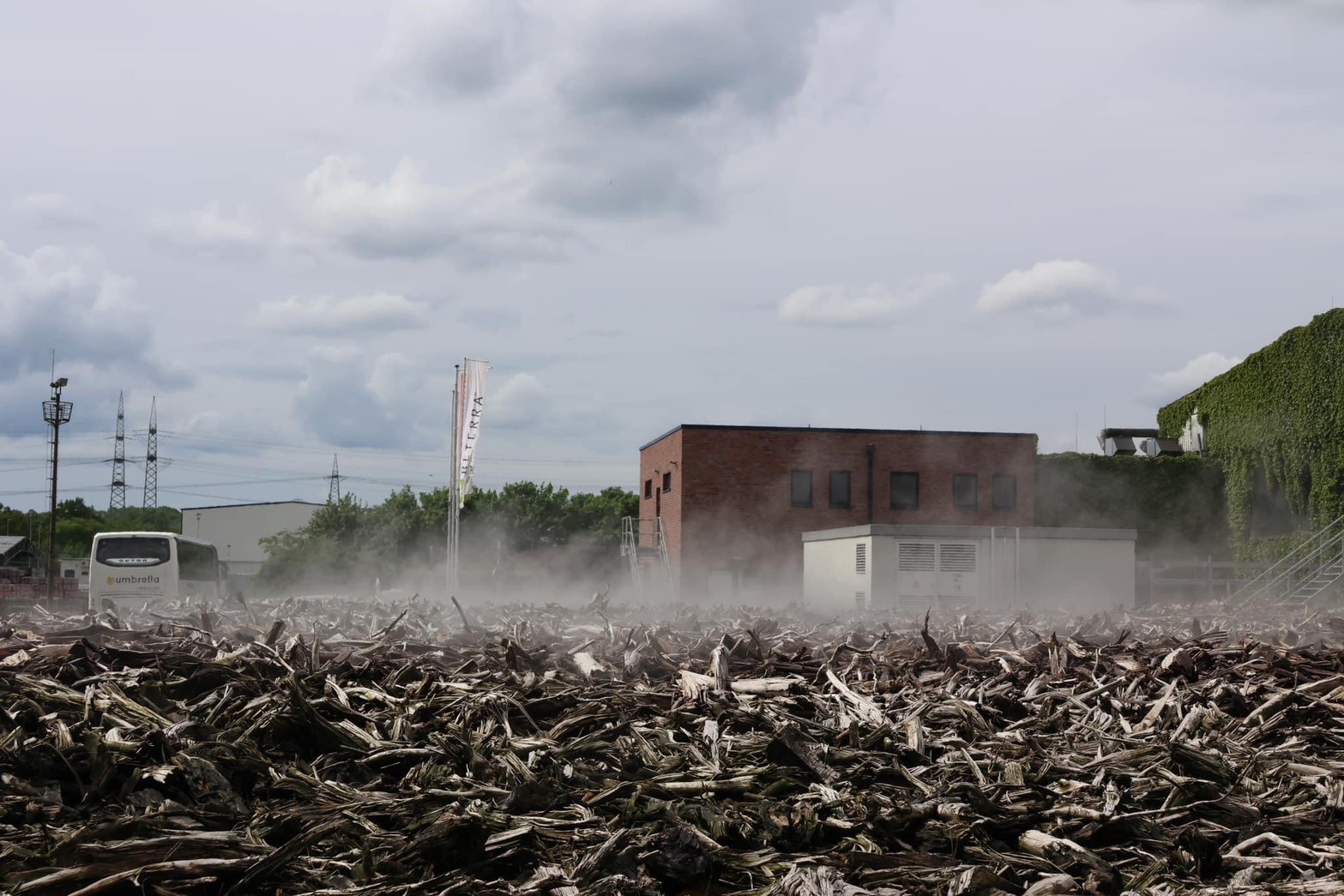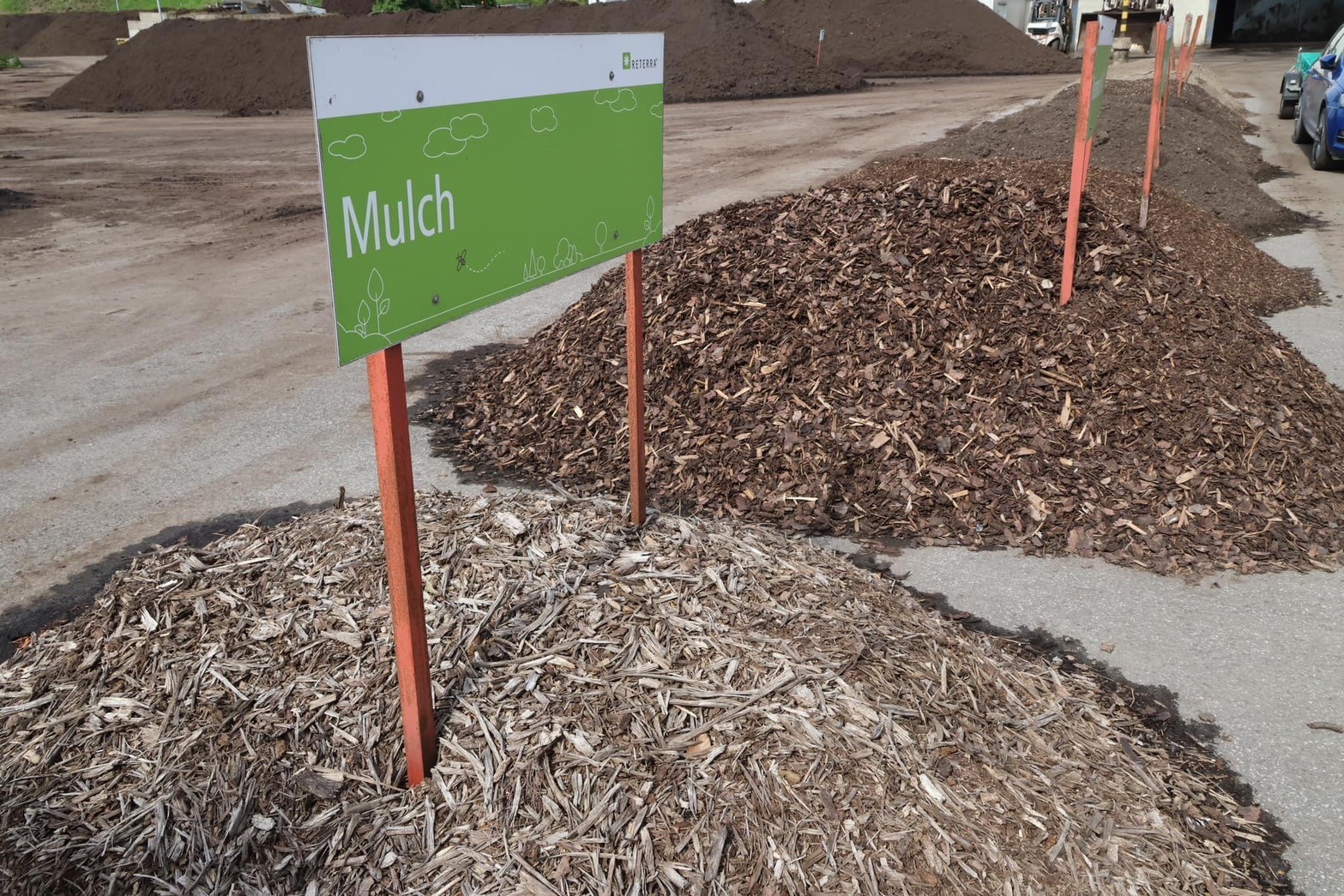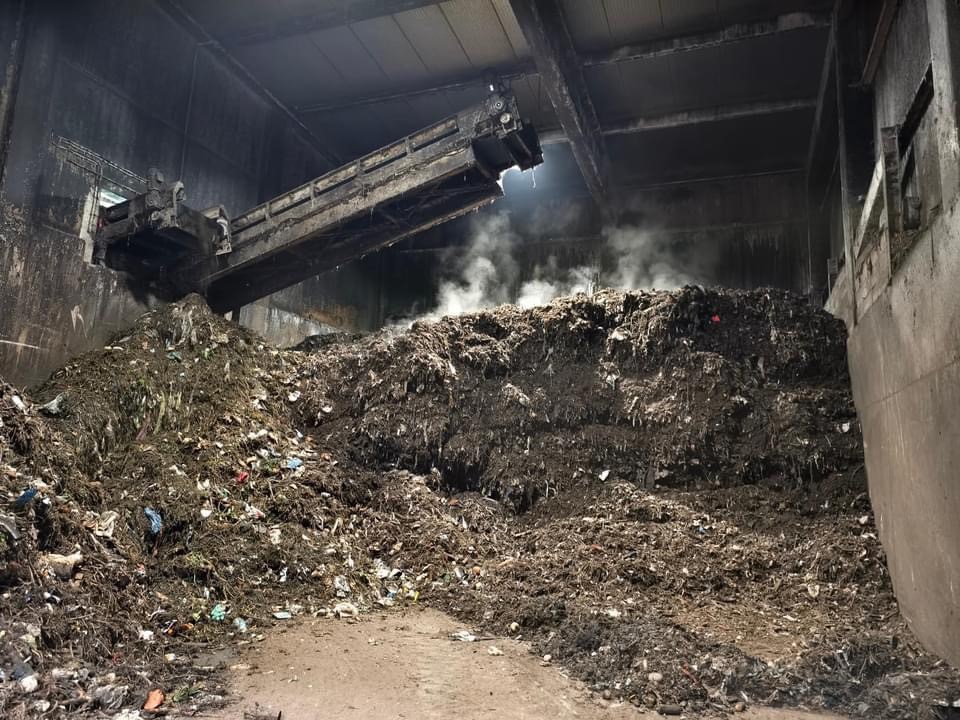To understand the mode of operation of the circular economy in Europe, Magistrate Li-Shan Chang took a delegation to visit the REMONDIS’ Lippe Plant (Lippewerk) in Lünen. It is the largest recycling plant in Europe covering an area of 230 hectares. The goal of this trip was to learn about the operation of the solid recovered fuel (SRF) and organic industries, two special industries of Yunlin County.
The plant consists of earthworks plants, construction waste recycling areas, composting plants, and SRF plants. Lippewerk aims at recovering industrial waste and recycling it for industrial use. Every year over 1.6 million tonnes of waste are shipped to the plant. About 1 million tonnes of such waste are recycled into semi-finished products, raw materials, and industrial products, and the remaining 600,000 tonnes are turned into SRF or landfilled to raise the value of waste recycling and lower the burden of waste disposal. Lippewerk is considered a paradigm of the integrated circular economy to make resource recycling and energy sustainability a reality.
According to Yunlin Magistrate Li-Shan Chang, the delegation visited the SRF plant of Lippewerk. The annual capacity of the plant is 180,000 tonnes. It removes iron and aluminum by crushing dry waste into small pieces about 30mm in diameter as the raw material for making SRF for use by power plants and cement works. In response to the net-zero emissions 2050 target, SRF is considered an attractive alternative fuel product for its fuel alternation and carbon reduction effect. The Yunlin County Government has been “turning waste into energy” for years. Learning about the mature technology and plant operation from Germany will benefit the future establishment of SRF plants in Yunlin.
The delegation also visited the Reterra biogas power plant. The plant processes 50,000 tonnes of kitchen waste and 25,000 tonnes of green waste (e.g., tree branches and leaves and garden plants) every year. The composting site adopts two systems: composting using aerobic processing with the aerobic fermentation tunnel, and composting using anaerobic processing with the anaerobic fermentation tank. The biogas generated from the latter is then purified for use by the combustion engine of the power plant to generate electricity. The Yunlin County Government can also learn from this for green energy development.
Magistrate Chang stated that the Lippewerk visit has inspired clearer ideas about waste treatment and circular economy planning for the county. Currently, the Yunlin County Government has implemented the resource and energy recycling of seven items mainly from various types of waste in the county. These include building steady channels for recovering plastic mulches used in agriculture, fisheries, and forestation; insect nets and fish nets to solve problems in agricultural and fishery waste disposal; the introduction of “Yunlin Fertilizer” to benefit farmers with local kitchen leftovers; the promotion of using incinerating recycled aggregate (IRA) in public construction projects in the county; the manufacturing of SRF with bulky waste and waste tree branches by crushing; the recovery of clam shells as additives for fertilizers; husbandry excretion to digestate and biogas slurry for farmland irrigation; and transforming domestic waste into SRF. With these efforts, the Yunlin County Government aims to maximize the value of waste reuse.
Magistrate Chang hopes that the Lippewerk visit can help Yunlin County expand and extend the scope of waste to resources and energy and become a magician that promotes total resource recycling with waste and turns waste into gold, making Yunlin a model city of carbon reduction and the circular economy.

